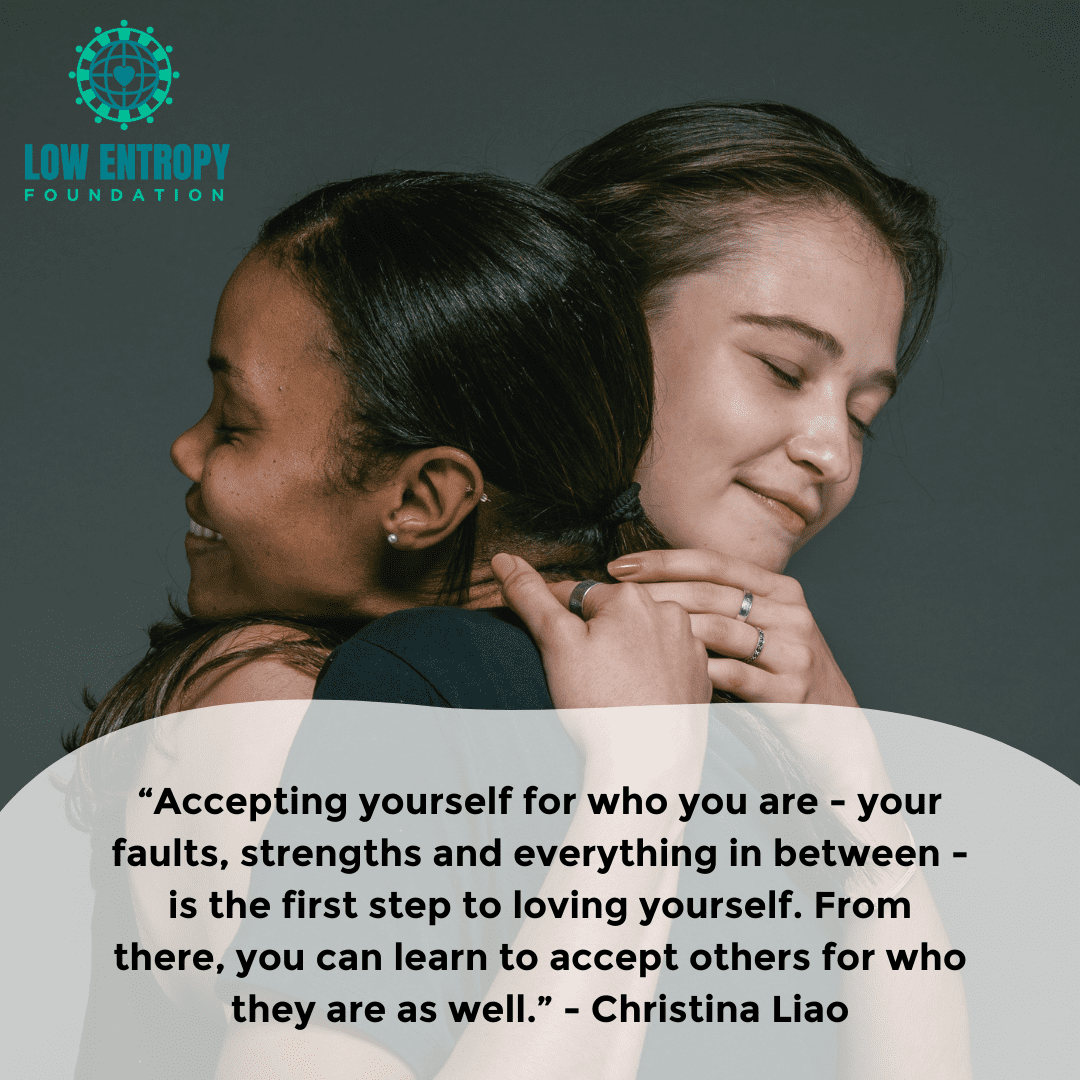Christina Liao (she/her/hers), Low Entropy Volunteer Writer
Kindness is such a fickle thing – it’s hard to come by, but it’s easy to give. It’s important to be kind to others, especially during a global pandemic. A simple act of kindness can brighten someone’s day, maybe even week. Giving somebody a compliment or telling them how good their outfit looks can change their day from bad to good. When someone is experiencing tough times, being understanding about their situation can help them through their difficulties. It’s important to be kind to everybody and, as Harry Styles would say, treat people with kindness.
One way to increase the amount of kindness that we experience in our society is by eliminating discrimination. Being cruel to someone purely because of their race or sexuality is easier than being accepting of them, but we need to be accepting in order for our society to progress. We need to be aware of people in minority groups and not be discriminatory to them. We need to treat all people of colour and members of the LGBTQIA+ society with the same amount of respect that we would any other person. People aren’t born homophobic and racist, it’s taught. And just as easy as it is taught, it can also be unlearned if people are willing to take the necessary steps.
Self-respect and self-love can also lead to more kindness. You need to love yourself for who you are before you start loving others. Accepting yourself for who you are – your faults, strengths and everything in between – is the first step to loving yourself. From there, you can learn to accept others for who they are as well. What’s most important is that you need to be confident in your own body. In order to do that, you need to stop worrying about what other people think of you. Just focus on what you think of yourself. Learn to see through the faults and reach the good parts. Everyone is unique; everyone has their own parts that shine and problems that they need to focus on. Loving every part of yourself is the first step to loving and being kind to everyone else. People are mean because they project their insecurities onto others, so start loving yourself. It’s not hard if you really want to change the way you treat others.
Once you love yourself and know how to treat yourself, you need to know how to treat others with equal respect. To do that, you should treat the people around you how you want to be treated. Be empathetic towards the situations of other people. Be respectful to people who are experiencing tough times and please, don’t discriminate. Tell someone that their shoes look nice, or tell them that they’re doing a good job at something they’re working on. Engage with them like how you would want to be engaged. Overall, just spread more positivity than negativity. If you don’t have anything kind to say, don’t say it.
Being kind shouldn’t be a chore, nor should it be something that you don’t do already. Most people just need to understand how their actions can harm others. Everyone deserves to be treated with kindness and respect, everyone should be treated equally. Treating others equally starts with treating yourself fairly. Just remember to be kind to others, especially in tough times like now. Never forget to be kind and understanding toward other people. We shouldn’t need a daily reminder to treat people with kindness, but here’s one for you today.
***
My name is Christina and I am currently a student at Simon Fraser University in the Faculty of Arts and Social Sciences. I love listening to music, reading, writing and, honestly, anything Marvel. In short, I’m a total nerd. I volunteer as a blog writer here at Low Entropy.








